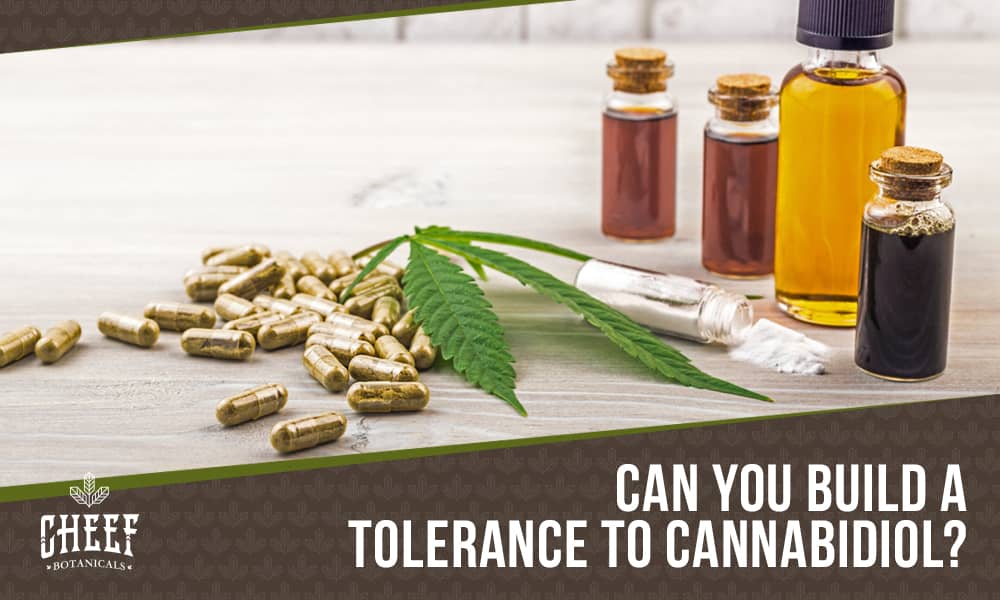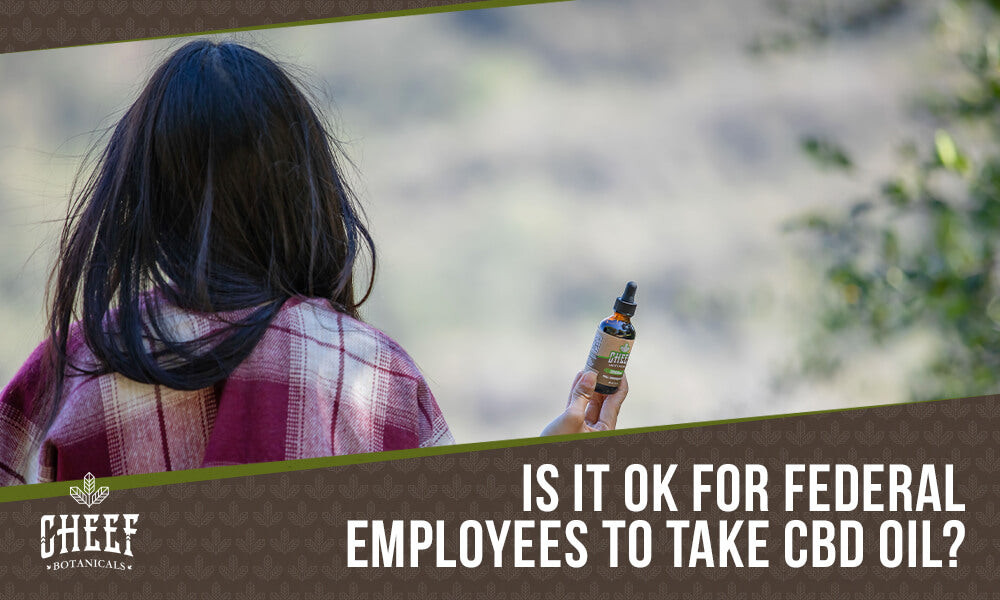CBD and its potential benefits have attracted swarms of people to give it a shot for various reasons. From using it to sleep better, reduce nervousness, or decrease swelling and discomfort, more and more people have found CBD helpful. This has left several regular users wondering: “Can you build a tolerance to CBD?”
The answer to this isn’t too straightforward, given that everyone’s body feels the effects of CBD differently. Some research even suggests that taking CBD works opposite to tolerance building. Here’s what we know so far about developing a tolerance after long-term CBD use.


Building Up a Tolerance
It's important to remember that, like many other substances, you can develop a tolerance to CBD. If you notice that CBD isn't as effective over time, consider taking a break for a few days to reset your system. After the break, start with a low dose and gradually adjust as needed.Can You Build a Tolerance to CBD?
Several studies have concluded that using cannabis containing tetrahydrocannabinol (THC) can result in building tolerance. However, these studies say the opposite is true when it comes to cannabidiol (CBD). Scientific reviews of CBD oil use say it’s not likely to build a tolerance when using CBD, and that long-term use might even result in a reverse tolerance. Researchers have used the term' reverse tolerance' to refer to situations where an individual needs a substance less overtime. Generally, over time, the more a person ingests CBD, the less they need to feel its effects. With this said, people who use CBD consistently may find relief with fewer or smaller doses over an extended amount of time.
CBD Tolerance: What the Research Indicates
The data about CBD and long-term use suggests you can’t build a tolerance. So, let's look at what most researchers agree on and why you probably won’t build a tolerance to CBD. There are more than 100 phytocannabinoids in the cannabis plant, CBD being one of them. Humans naturally produce endocannabinoids in the body. Phytocannabinoids and endocannabinoids are chemically similar, and both interact with the human's endocannabinoid system (ECS) to promote homeostatic balance throughout the body. Because of the ECS' recent discovery, more research still needs to be done. So far, studies suggest CBD indirectly activates the cannabinoid receptors found in the ECS. Since it doesn't bind to them, it's thought to increase the number of endocannabinoids in the body. When there are more endocannabinoids produced in the body, you’ll need less CBD to feel the effects of a balanced ECS. Since research is shy about reverse tolerance and CBD oil, the greatest method to test the theory is to do so individually. Your personal experience with CBD will be your best guide to understand if you can build a tolerance to it or not.What is a CBD Tolerance Break?
Tolerance breaks or "T Breaks" are generally for those using THC. A THC tolerance break, or t-break, helps those becoming tolerant to the effects of THC take a break from it. It helps the user clear their mind and body of any lingering psychoactive effects. However, more research is still required to draw up a more specific take on how tolerance breaks impact CBD use. For now, what we know is CBD acts opposite of THC in our systems when it comes to tolerance. Instead of building tolerance, regular CBD ingestion might multiply the body's natural endocannabinoids. This means, over time, users will need to consume less CBD to experience its benefits. Of course, if you feel the need to step away from regular CBD ingestion, you should take a break. Always pay attention to how CBD makes you feel and listen to what your body needs for the best results.How Much CBD Oil Should You Take?
Because it’s not likely you’ll build a tolerance to CBD, and might even be dealing with reverse tolerance right now, you might be wondering how much CBD oil you should take. Learn more CBD facts here. To understand the effects CBD has on you, it’s best to record each dose you take. If you feel any effects, write them down and include how much you took. If you need more or less, simply adjust your dose. Taking more than the recommended amount is nothing to be nervous about, especially if you already know how you feel with a little. CBD is non-toxic, and according to the World Health Organization (WHO), “CBD is generally well tolerated with a good safety profile.” Pay attention to how your body reacts to CBD, and don’t be scared to experiment with different delivery methods. You can try CBD in various forms, including CBD vapes, CBD edibles, CBD oil, CBD topicals, CBD capsules, and more. How you feel CBD depends on a few things like:- Weight
- Your goal
- Body chemistry
- The concentration of CBD in the product

Can You Overdose From CBD?
As we briefly mentioned above, CBD is considered safe for humans. There is no evidence that even slightly suggests a person can overdose on CBD. Despite the limited research on CBD, you just can’t overdose on CBD. However, that doesn’t mean you should be irresponsible in taking CBD. If you’re new to CBD, follow the dosage guidelines that accompany each product and take it from there.Related article: What Are The Side Effects of CBD Oil



 CBD Gummies - Top Seller
CBD Gummies - Top Seller
 CBD + THC Gummy - Excellent Choice
CBD + THC Gummy - Excellent Choice
 CBD Hemp Flower - Highly Rated
CBD Hemp Flower - Highly Rated
 Full Spectrum CBD Oil - Good Value
Full Spectrum CBD Oil - Good Value



Leave a comment
This site is protected by hCaptcha and the hCaptcha Privacy Policy and Terms of Service apply.